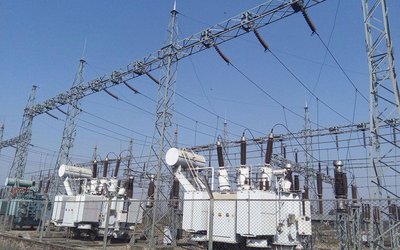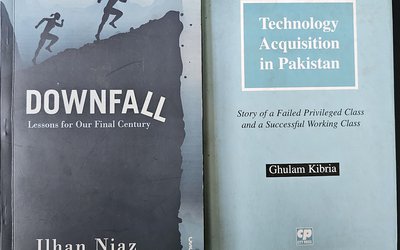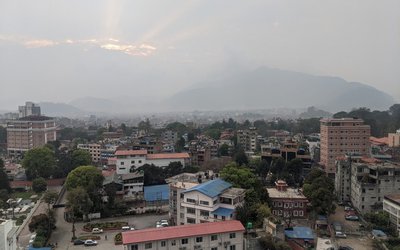The old Batman films had a Joker. Our present government has KP Oli and whatever one may say about him, one has to give him credit for the courage that he has shown in confronting India and signing treaties with China for Nepal’s wellbeing, especially after the recent 155 days blockade in our Southern border.
Irrespective of the tribute that Prince Harry has paid for the two hundred years of UK-Nepal relationships, the real fact is that the Britishers have always taken us for a ride as they invariably put their interests first. One has only to think of the Sharada Canal in Western Nepal and the closed traditional trade routes to the North for which the British were squarely responsible.
Well, they left India but true to the Macaulay heritage, the Indian Babu that they developed and perfected during their three and a half Centuries rule took their place as the Brown Sahibs or Western Oriented Gentlemen (WOGs) to rule India. The dream of the New Masters, since their severance of 1947 has always been to take over the Empire that the British had left behind. If it could not be one ‘where the sun never set’ let it be at least for half that time. The bossing attitude of these New Masters became a regular routine on the occasions that gatherings took place in the South East Asia Region whether in the guise of SAARC or ASEAN. The Ugly American now had a replacement!
The recently concluded visits of two PMs, KP Oli and Ranil Wickremesinghe to China have brought to the fore the wish of the Chinese to resurrect its ‘One Belt One Road’ strategy to develop Intra region trade. After all, prior to the coming of the British to India and their prominence in the South East Asia region, all the trade had been conducted along the traditional Old Trunk Road which existed even in Mauraya Times. Then there were the Silk Road routes further north. Another old trade route which functioned as long ago as 1667 had its moorings at Lhasa, Kathmandu, and Kolkata and vice versa. It is in fact a matter of just delving into the past and resurrecting what would have been there had not the British dominated the region. The five ports being built in the Indian Ocean region namely in Myanmar, Bangladesh, Sri Lanka, Maldives and Pakistan should also be looked at as a plan to bolster up the trade in the region. If the proposal to open up the old trade routes along the Northern border of Nepal plus also the building of a rail road connection to this country becomes a reality then great changes will surely occur in the region. All this will increase the Indo-China trade many fold too and so is very commendable.
The trouble with our southern neighbour is that they have always been slow in their commitments to Nepal. One has only to think of the Trisuli project which really did not start until the prospect of the Russian Panauti electric supply became a reality. True the Indian army built the Tribhuvan Raj Path and thus opened up the country but this was in their interest to do so. The northern border’s seventeen military mission check posts, including Lipu Lek were set up and it took ages for sixteen of them to be sent back to India!
Except for the Koshi Barrage, There seems always to be some delays in the implementation of projects taken up by India. One has only to think of Pancheswar and the Hulaki Marga. Whilst this road which was in use during the Rana days and was superceded by Mahendra Raj Path, the agreement to upgrade it has not been implemented during the last twelve years. We are aware that the Grand Trunk Road from Delhi way towards the East. Calcutta which features in Rudyard Kipling’s Kim had a great role in the development of Northern India. Whilst there has been talk of the Asian Highway from time to time, it too has not made much headway in the plan to have it passing through Nepal? Why is this so? Perhaps if the Hulaki Raj Path had been contracted according to the schedule, the Terai or Madesh as it is being referred to now would have been a very developed community, bustling with activity. One can only wonder at the turn of events that have taken effect in Nepal following the Earthquake of 2015, its aftershock and the ‘unofficial’ Indian blockade of one hundred and fifty five days.
The diversification of its trade and the attempts by Nepal should be taken by India and its sponsors in the Western world more positively than they are doing now. If there are likely to be any shortcomings or worries especially regarding security, more specifically terrorist threats, then these should be looked at minutely and solutions sought. Nepal’s relationship with its two neighbours has been cordial in the past and the demand is that it should continue to be so. It is in the interest of all parties that the well being of one’s neighbours leads to one’s wellbeing too. Only when this exists can we hope for the overall development of the region. A major way to bring this about would be to see that projects and undertakings that have been agreed upon should be started and completed within the scheduled time period and there should be no room for lateness! Brown Sahibs should remember that the colonisers have gone, the wind of change has swept over South East Asia and there is no place for Late Latifs in this present day and age.
The author writes fiction under the name of Mani Dixit. Website: www.hdixit.org.np. Twitter: @manidixithd

Hemang Dixit
The author writes fiction under the name of Mani Dixit. Website: www.hdixit.org.np. Twitter: @manidixithd
- Top Heavy
- Sep 20, 2023
- Most Able?
- Sep 04, 2023
- Changing Times
- Aug 21, 2023
- Nepali Shenanigans
- Aug 03, 2023
- Budget Naataks
- Jun 29, 2023
















